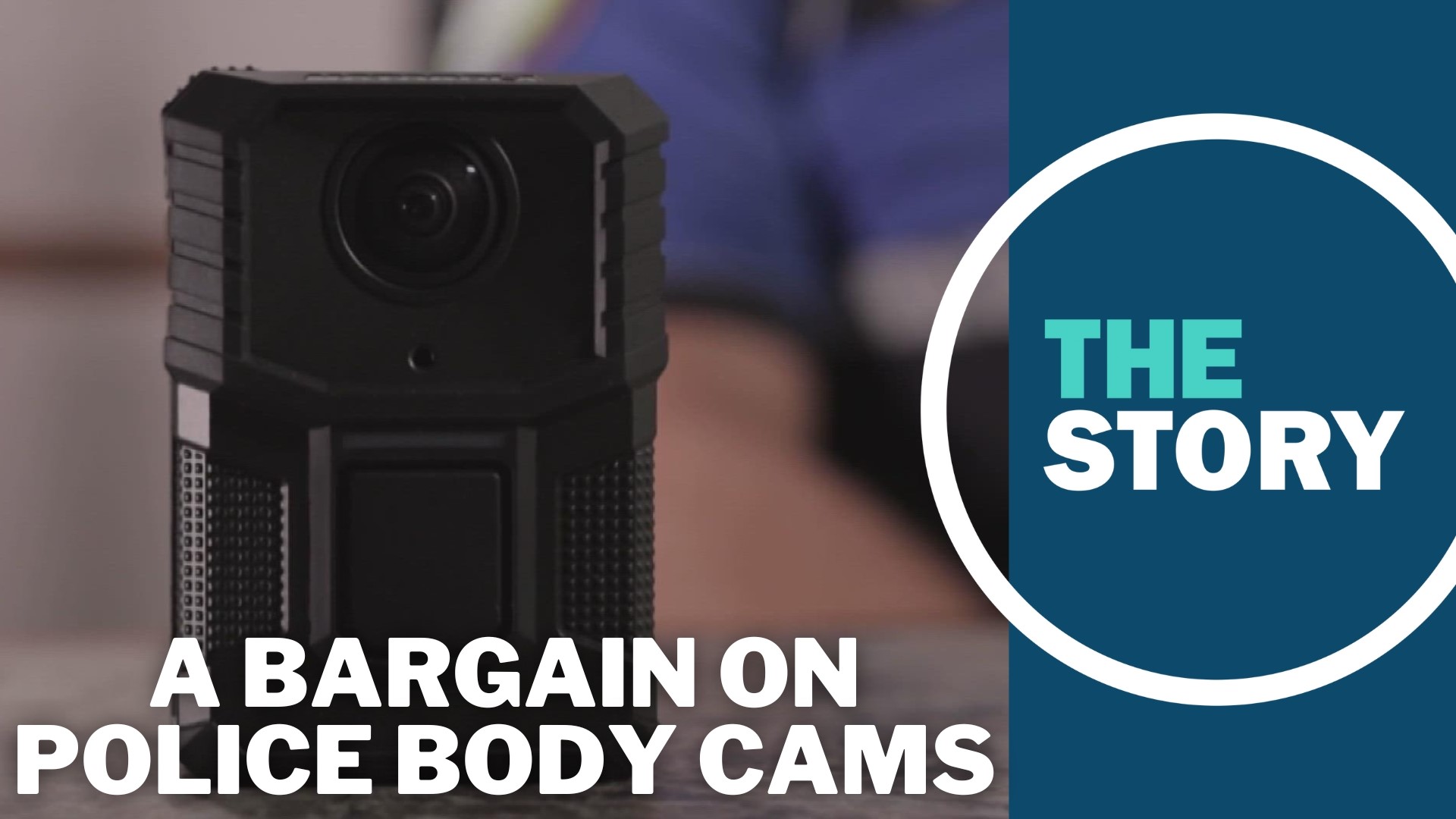PORTLAND, Ore. — The City of Portland and the police officers union have reached a long-awaited agreement on the adoption of body-worn cameras, clearing the way for cameras to be deployed "in the next couple of months," according to Mayor Ted Wheeler.
About 80% of large U.S. police departments use body cams, according to the U.S. Department of Justice, and Portland is the largest city that still lacks them. Budgetary concerns delayed the program for years, but more recent hang-ups stem from policy disagreements between the city and the Portland Police Association.
After reaching an impasse in negotiations in February, the city and the police union released the details of their "final offers," which showed there was one big sticking point: The two sides couldn't agree on when and if officers should be able to review body cam footage before writing reports about incidents.
Wheeler's office announced the breakthrough in a news release Thursday night that did not detail any terms of the agreement, but Wheeler subsequently told KGW that the footage review rules would vary depending on the severity of the incident in question.
The City of Portland has since shared details on the agreement ahead of next week's council meeting.
"What it allows is for specific cases where deadly force is used or serious bodily injury results, the officers may give a statement, but they can't review the video until after they have written their formal statement," Wheeler said. "And in cases where there's no injury or there's lesser injury, they can still give an initial statement — and that's consistent with national DOJ practices — but they can then later on update their report based on having viewed the footage."
The city and the union reached the agreement about two weeks ago, he added, but they had to wait for the U.S. Department of Justice to signal that it would approve the deal. The DOJ is involved because of a 2014 settlement agreement with the city regarding police use-of-force incidents.
The compromise will still need to be approved by the Portland City Council, but Wheeler said he believes all of the city commissioners are "enthusiastically supportive" of the deal and he expects it to pass.
“I think it’s a really commonsense approach," Wheeler said. "I think most people will look at it and say that makes sense, we should move forward, we’ve waited a long time for body worn cameras, and I believe we will be implementing them in the next couple of months."
Footage review disagreements
The compromise described by Wheeler appears to fall in between the earlier policy proposals from the city and the police union detailed in the final offer documents.
The union wanted no restrictions on officers' ability to review body cam footage; officers would always be able to review their own incident footage before writing reports, even in cases of deadly force.
The city wanted some restrictions on pre-reviewing body cam footage for use-of-force incidents, with more stringent rules for deadly incidents. Under that proposal, officers would only be allowed to view footage before writing a report if the incident did not involve force.
PPA President Aaron Schmautz told KGW Friday that the new agreement represents a compromise between the two sides.
Schmautz said in the most serious cases, when an officer uses deadly force or force that causes serious injury, that officer will have to give an interview or statement first, before viewing any body camera video.
"By doing an interview where both the interviewer and the interviewee have both not watched a video that might pollute their perception of an incident, you do that interview and then you move and watch that video and then complete the interview by answering any questions that might not have been answered," he said.
However, Schmautz added that in more minor cases, officers can use videos to help write their reports.
These Category 3 and Category 4 cases of use of force could involve resistance against handcuffing or basic takedowns not resulting in serious injury, he said.
"My hope and my belief is this will build accountability and trust in a system that heard the concerns and landed on a place we can all support," Schmautz said.
The Portland Police Bureau plans to give cameras to its Focused Intervention Team and central precinct officers to start, with the goal of every officer using a camera by the end of the year.
Previously, Schmautz had said that unrestricted pre-review of body camera video is the standard for the "vast majority of (police) agencies" across the country, although The Story found examples of policies similar to the city's offer in some comparably-sized cities.
In Oregon, most agencies do appear to allow unrestricted pre-review, with the notable exception of the Salem Police Department under its new body cam program.
The argument against pre-review, which comes from organizations like the ACLU, is that officers might be motivated in use-of-force incidents to mold their narrative of events to what can be seen or heard on the video — which often can't capture the full scene — rather than delivering a report from memory.
PPA has argued that reviewing body cam footage can improve an officer's accuracy in writing reports, and that withholding the ability to review video might serve as a way to unnecessarily snare officers when innocuous lapses in memory occur.

